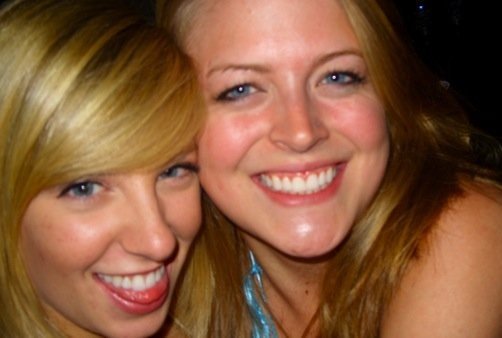I have no collage because there are no pictures that portray what I'm truly feeling about Thanksgivings day.
Tuesday, December 16, 2008
Thanksgiving Day Collage
This collage has taken me a while to think over because I've had to mull over all of my feelings about it, and what I really think when I think of Thanksgivings Day. First things that do are Pilgrims obviously, Squanto, and Pocohantes. I think of those two Native Americans in particular because when I was growing up, those are the two that I heard had helped the colonizers to survive. Their knowledge aided John Smith, and those with him. I think the reasons that I link the two Native Americans and Thanksgivings Day is because what I have heard about the holiday is that Native Americans sympathized with the pilgrims, and helped them grow and find things. So in a sense, I relate the two. I have always known, as a caucasian, Thanksgivings Day to be a time to be thankful for what you have; and to be thankful for the people who are around to help you. Unfortunately, as I have grown up and learned new things, I see that quite the opposite happened in the past. I suppose it is hard to accept truth on some levels. Not all of these Europeans coming across had good intentions, if any, and the true story often tends to be different than those that we have learned. So, getting to the point, when I think of Thanksgivings Day, I think of materialistic things like food, a break from school on first thought; when I think deeper, I think of things like what the pilgrims went through to get to the place they were, and how they took advantage of those people who were living there first and who were so kind to them.
Monday, December 15, 2008
Everyday is a Good Day; Gail Small and Wilma Mankiller; Women and Spirituality
Women are a very important part of spirituality, and an integral part of spiritual leadership. Native American women define their spirituality as their identity, yet neither is more or less equal. Spirituality and their identity are connected. Christianity does not affect these women's spiritual lives, and Native women do have a place in the Christian community. Women are spiritual leaders. I grew up learning this, and came to a harsh reality at some churches I went to that would not allow women as leaders. I ask the question; how are men more equal than women that they are able to advise people???
Don't Let the SUn Step Over You: Ch 9
In the Apache tribe there are some methods that are thought to cure sicknesses. One can go down to the river in the winter and go in it; also herbs are used to help flush out the system. These methods have been learned over time through tradition, trial and error, and knowledge of nature. Many of the medicines we use today, the Native Americans were using.
Sons of the Apache tribe went through rituals while becoming men. These young men were kept out for 4 days to prove themselves; they came back men. Superstitions and traditions are associated with many parts of Apache life; during childbirth a pregnant woman would not look at non-human things, would not eat liver (only plain meat), and would not turn their backs to the sun. While I was reading this, it reminded me of faith. Although I feel as though some may think of these rituals as unneeded and frivolous, this is no different than any other religion.
Strong Women Stories Ch. 1& intro
Gertie Mai Muise's story was told in this reading. She was of the Mi'kmaq women that travelled to Newfoundland for a visit. The Canadian government refuses to recognize them under the Indian Act. Because of the poor economic situation she had to live away from her home town, and is hoping that by traveling back she will be able to help her community. Because of the push to assimilate, and because of the genocide experienced their people are disappearing as a race. After just one meeting, Muise was able to inspire some motivation. It's amazing what one women can inspire in others. Seeing someone from where you are from that has succeeded is uplifting and encouraging. I want to look further into this story.
Warrior Women and Women Chiefs: Alternative Identities and Genders for Native Women
This chapter brought up the idea that women in the Western society must act in a certain way. Indigenous women choose not to mold to this, which is why they're not able to get any significant or good attention from white "Amerikka". Native women have been pushed into the background and brushed under the rug because they're the 'Other'. Along the east coast there were many Sunksquaw "woman chief". These women provided ways to gain leadership roles and opportunities.
In my personal life, I wish that I could make my own mold, and not be forced into what I'm expected to be. As much as I do to try and be my own person, I see that in some ways that I'm not seen as feminine. When a woman takes steps outside of the mold that is given her, shes not seen as feminine.
Subscribe to:
Comments (Atom)
